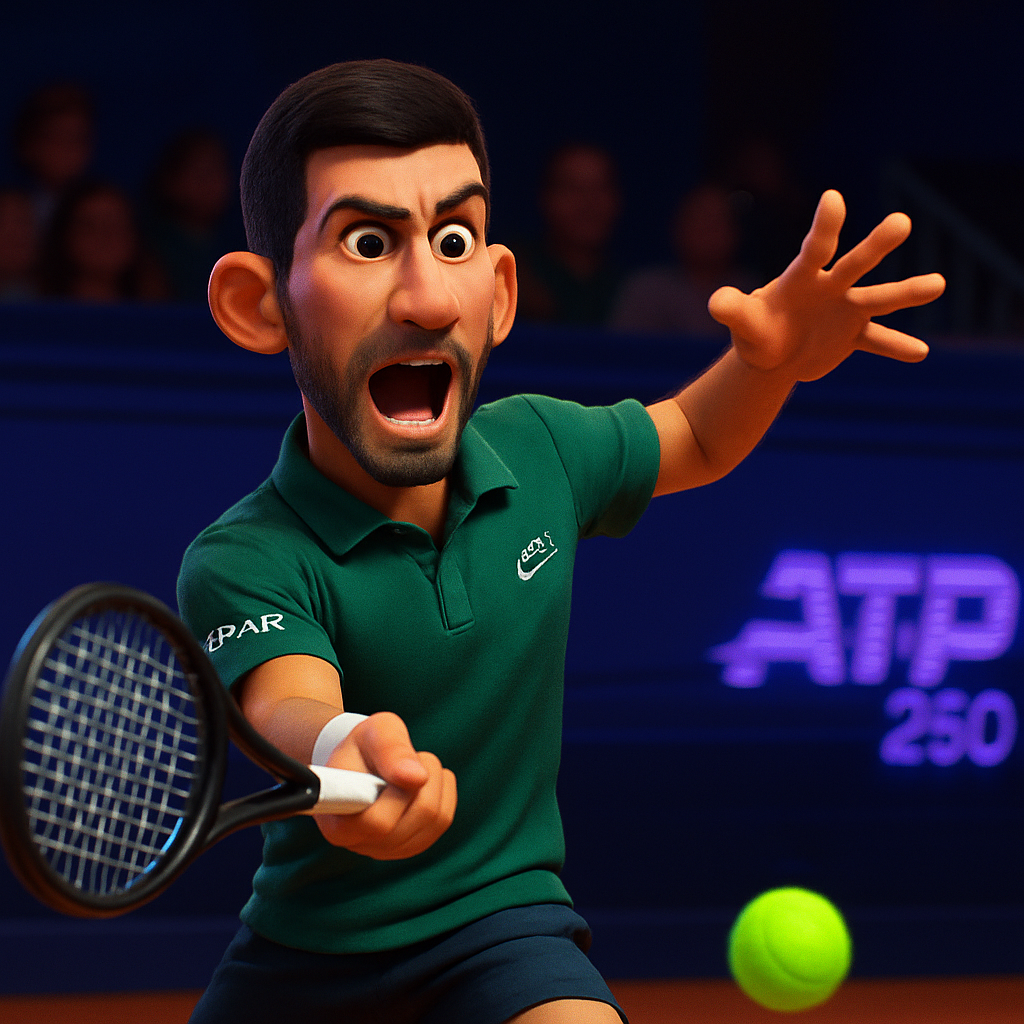In a surprising and deeply personal revelation, tennis legend Novak Djokovic has opened up about the profound impact of fatherhood on his life and career, a topic brought to the forefront following his family's recent relocation to Athens, Greece. The 24-time Grand Slam champion, known for his relentless on-court intensity, has shown a more vulnerable side, discussing how his role as a father to his two children, Stefan and Tara, is now his "greatest priority and most cherished title."
A New Chapter in the Hellenic Republic
The move to the Greek capital, confirmed earlier this summer, marks a significant lifestyle change for the Djokovic family. While the Serbian star maintains a residence in his hometown of Belgrade and has spent considerable time in Monte Carlo, the decision to establish a home base in Athens is rooted in a desire for stability, privacy, and a sun-drenched Mediterranean upbringing for his children. "We fell in love with the light, the history, and the warmth of the people here," Djokovic was quoted as saying in a recent interview with a Greek publication.
This relocation is not merely a change of address; it represents a conscious shift in Djokovic's life paradigm. After decades of a grueling, globe-trotting schedule defined by tournaments and training blocks, the 37-year-old is intentionally carving out a sanctuary for his family. The choice of Greece, a country with deep historical ties to Serbia and a climate conducive to year-round outdoor activity, offers a perfect blend of cultural familiarity and idyllic living.
Fatherhood: The "Ultimate Motivation"
In a candid conversation, Djokovic made a startling admission about the evolution of his perspective. He confessed that while the pursuit of tennis records once consumed him, his children have fundamentally reshaped his worldview. "For many years, my identity was Novak Djokovic, the tennis player. Now, I am first and foremost Stefan and Tara's father," he stated.
He elaborated on the daily joys and challenges, emphasizing how his children keep him grounded. "When I come home from a tough loss or a draining practice, their laughter, their simple questions about my day, it just resets everything. They don't care if I won a trophy or not; they care if I'm present to read them a story or play in the garden." This, he says, has been the ultimate antidote to the immense pressures of professional sport.
Djokovic detailed how his parenting philosophy centers on being an active, engaged presence—a commitment that his new life in Greece facilitates. His daily routine now often includes:
- Morning walks along the Athenian coast with his family.
- Prioritizing school pick-ups and family meals.
- Exploring ancient ruins and museums as educational outings.
This hands-on approach is a conscious departure from the life of a perpetually traveling athlete. "I don't want to be a father they see on a screen or from a distance. This move, this new chapter, is about being there for the small moments, the moments that truly matter," he affirmed.
Balancing Legacy and Family
The admission inevitably leads to questions about his tennis future. Djokovic, who experienced a dip in form and some unexpected losses in the 2024 season, acknowledges that his priorities are in a new equilibrium. He is transparent about the fact that his training and travel schedules are now meticulously planned around his family's needs. "The fire to compete is still there, it burns brightly, but it's now a controlled flame. It's balanced."
This balance, however, does not signify a decline in ambition. Instead, he frames it as a more sustainable source of motivation. "When I play now, I play for them. I want to show my children the values of discipline, resilience, and pursuing your dreams with passion. Winning is a wonderful byproduct, but the lesson is in the effort." He believes that this perspective, freed from the obsessive need to win every single match, could paradoxically prolong his career by reducing mental burnout.
The Greek Training Base
The practicalities of the move also include establishing a new training base. Djokovic has been utilizing top-tier facilities in Athens, blending his rigorous physical conditioning with the calming influence of his new environment. His team, including coach Goran Ivanišević and fitness coach Marco Panichi, have joined him for training blocks, finding the Greek setting to be a productive and focused alternative to more traditional tennis hubs.
The Serbian star has also been spotted hitting with local Greek players, further endearing himself to his new community. This integration highlights a key benefit of the relocation: the ability to maintain world-class preparation while providing a stable, enriching home life for his wife, Jelena, and their children.
A Broader Perspective on Life and Sport
Djokovic's fatherhood admission is part of a broader maturation that fans and pundits have observed in recent years. The man once criticized for on-court outbursts has evolved into a statesman of the sport, whose reflections on family, legacy, and personal growth reveal a complex and thoughtful individual. His journey mirrors that of other athlete-parents who have spoken about the transformative power of parenthood, but his candidness about reprioritizing his life around it is particularly striking for an athlete still at the pinnacle of his game.
In conclusion, Novak Djokovic's relocation to Greece is far more than a real estate decision. It is the physical manifestation of an internal shift. By choosing the ancient city of Athens as the backdrop for his family's next chapter, he is consciously building a legacy that extends beyond Grand Slam titles. His heartfelt admission underscores a universal truth: that for all the glory and accolades, the most meaningful victories often happen off the court, in the quiet, present moments of being a parent. As he looks ahead to the remainder of his career and life beyond, it is clear that for Novak Djokovic, the title of "father" will forever be his most cherished win.

